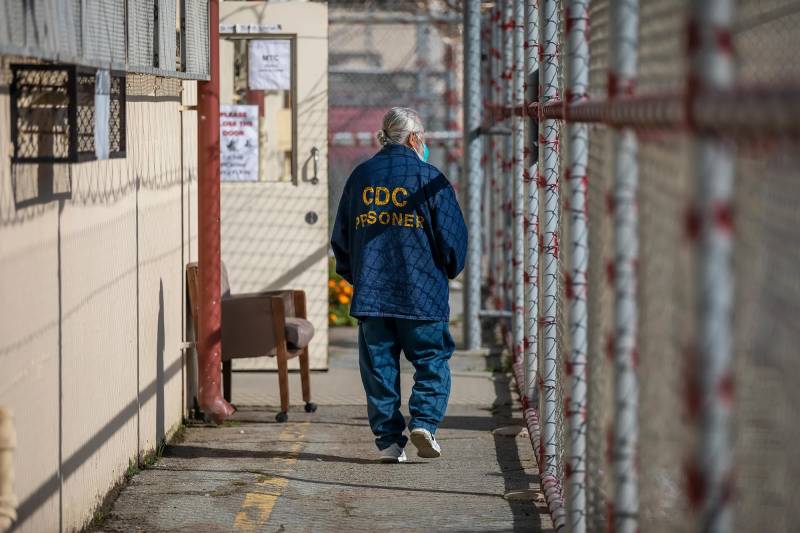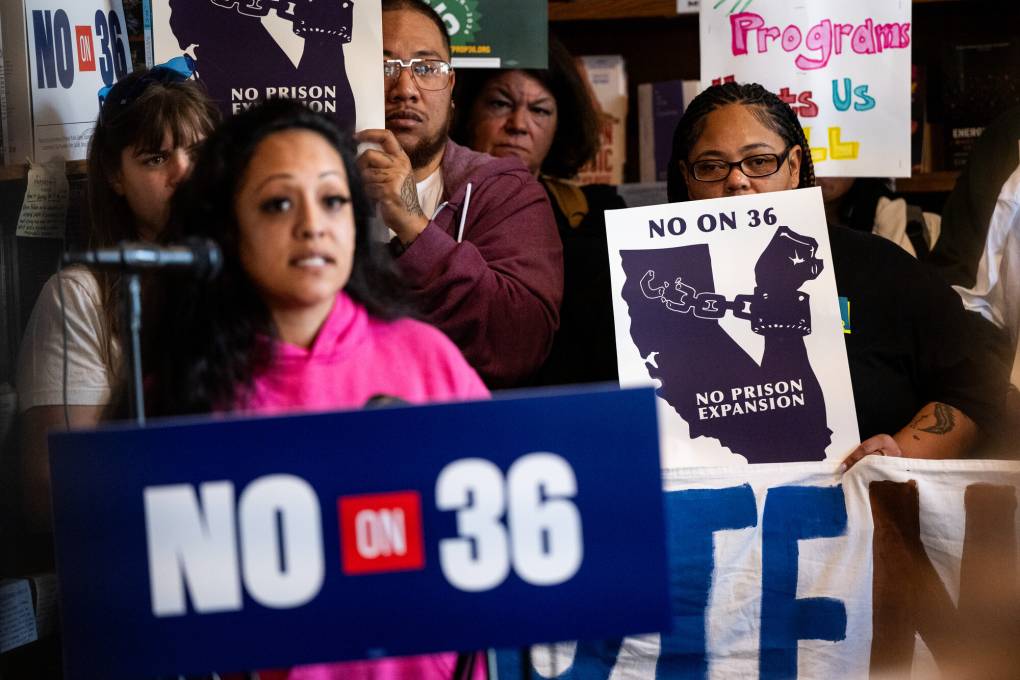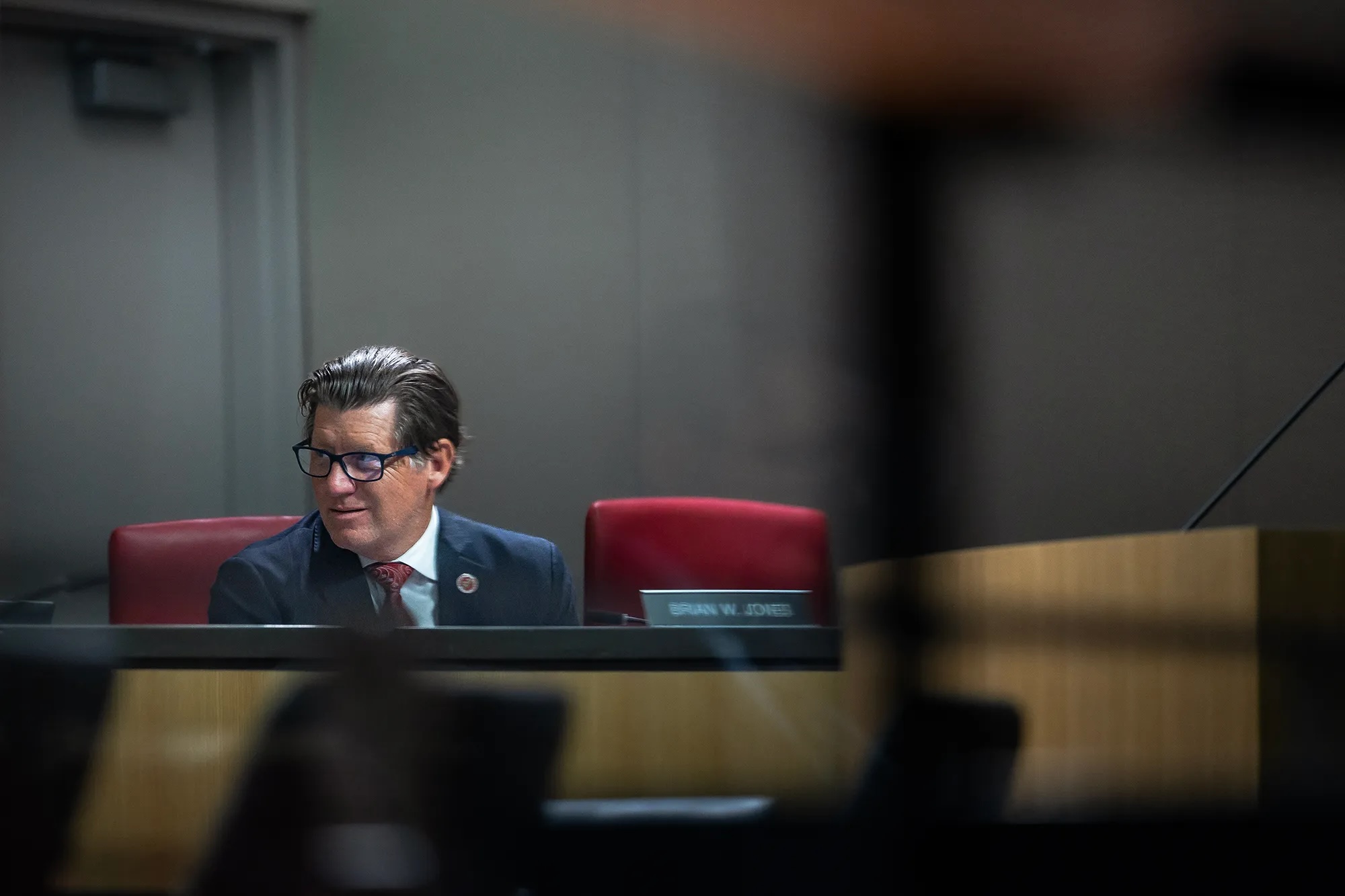Now, 12,303 people currently imprisoned – nearly 14% of the prison population – are eligible for either form of elderly parole, Humpal said.
Jones’ bill would bar those convicted of sexual felonies such as rape and child sexual abuse from parole eligibility at age 50. It would not affect their eligibility upon turning 60, or the parole eligibility date in their original sentences.
He also proposed blocking the earlier eligibility from people convicted of murder, but Arreguín’s committee removed that provision with Jones’ agreement before voting to advance the bill.
Proponents of the measure, including San Diego County District Attorney Summer Stephan, say victims shouldn’t be forced to relive the trauma of parole hearings and the prospect of their abusers’ release before the end of their original sentences.
They point to Mary Johnson, who identified herself as the childhood victim of rape and sexual abuse by her uncle. The abuser, Cody Klemp, was originally sentenced in the 1990s to 170 years. In 2023, under the elderly parole program, the Board of Parole Hearings recommended his release — then rescinded the decision last year. His next hearing is scheduled for 2029.
“Suddenly, I was no longer a 49-year-old woman, but I was a 13-year-old trapped and powerless and fighting again,” Johnson said in a press conference. “No victim’s family should have to fight over and over again to ensure that a dangerous predator serves the sentence that they were given.”
Closing the doors on the rehabilitated?
A group of criminal justice reform and civil rights advocates including the American Civil Liberties Union opposes the legislation, arguing it would close the door on those who have been rehabilitated in prison and pose less of a public safety risk. Studies have found the chances of re-offense decrease as a defendant ages.
Gary Harrell, who was given a life sentence for his participation in a murder, testified that despite becoming eligible for parole in 1984, he wasn’t released until about 40 years later, after he had gone before the parole board about 20 times. He said in the last two decades of his incarceration, he turned his life around, and now works a day job while in his spare time giving homeless Sacramento residents food and hygiene products.
“I have taken so much from others and now it’s time to give back and do my part to make the world a better place,” he said. “I hope you can see that the people who will be impacted by this bill are people like me who have changed and want to give back.”
Arreguín said he proposed removing Jones’ exclusion of people convicted of murder to focus the bill on sex offenses.
That tactic has yielded bipartisan backing in the last legislative session.
In 2023, Republican Sen. Shannon Grove of Bakersfield pushed a bill to increase penalties for child sex trafficking. Democrats in the Assembly Public Safety Committee resisted but, after a public outcry, Gov. Gavin Newsom stepped in with rare public comments in support of the legislation, which ultimately won more Democratic support and his signature.
Last year Grove’s bill to increase penalties for soliciting a minor for prostitution — targeting the buyers of sex — also prevailed. Senate Democrats carved out exclusions for 16- and 17-year-olds who are allegedly solicited, out of concern it would inadvertently rope in older teenagers who aren’t actually involved in or victims of trafficking. (The legal age of consent is 18.) This year, Grove is turning heads with a bill, Assembly Bill 379, co-authored with an Assembly Democrat, to undo those exclusions and apply the changes to all minors.
Jones acknowledged the tactic of focusing on sexual offenses is an incremental step toward tightening criminal sentences overall.
“We’re smart enough to know how far we can go,” he said.
This article was originally published on CalMatters and was republished under the Creative Commons Attribution-NonCommercial-NoDerivatives license.




